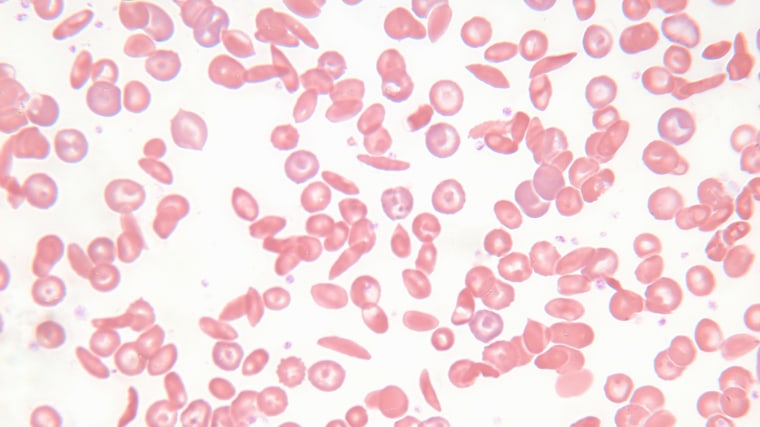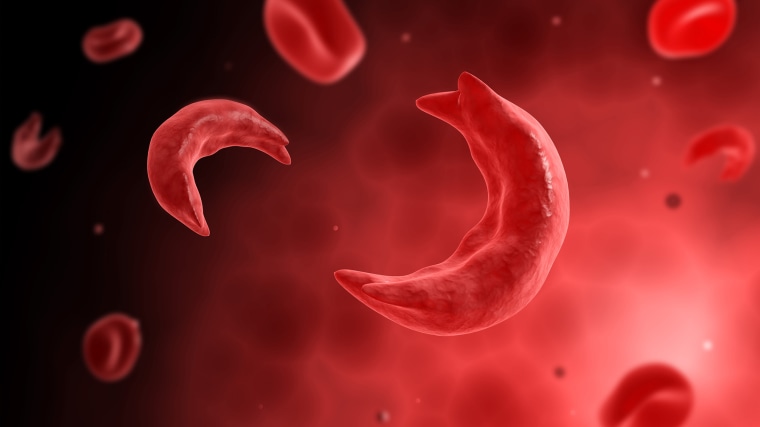Sickle cell disease is one of the most prevalent genetic disorders in the United States, yet more than a century after the disease was first diagnosed, there are limited cure options and no medications to manage pain specifically associated with the disease.
Experts attribute at least some of the lack of progress towards eliminating sickle cell to limited participation in clinical trials by blacks—the disease’s most affected population.
“People in this patient population are desperate for a cure,” Sonja Banks, the CEO of the Sickle Cell Disease Association of America, Inc. (SCDAA) told reporters. “We have patients wanting to enroll in bone marrow trials because they think it could be a cure. The challenge for advocates is getting out there and talking about clinical trials.”
RELATED: Too Fat to Fight: Is the Obesity Crisis a National Security Risk?
Sickle cell disease is an inherited disorder where red blood cells are in a sickle—or ‘c’—shape, which can block blood flow and create a painful sensation for patients. Sickle cell can affect anyone—it is estimated that 100,000 Americans have sickle cell disease. However, the disorder disproportionately affects people of African descent. According to the Centers for Disease Control and Prevention, one in 365 black American’s have the disorder, and approximately one in 13 blacks are carriers of sickle cell trait.
While African Americans may be most likely to have sickle cell, they are least likely to participate in the clinical trials that could help find a cure. According to the FDA, African Americans comprise 14 percent of the U.S. population, but only five percent of clinical trial participants.
One in 365 black American’s have the disorder, and approximately one in 13 blacks are carriers of sickle cell trait.
“Shamefully for us, some drugs have failed because we did not have enough participants in clinical trials and the warriors, the heroes, are what’s required in order to advance our treatments. We cannot do it ourselves,” said Dr. Freda Lewis-Hall who is Chief Medical Officer at pharmaceutical organization, Pfizer.
Lewis-Hall told reporters that one in seven people in the United States know someone who has participated in a clinical trial and only one in five Americans say their doctor has ever talked to them about clinical trial options, making participation an elite experience.

One reason for the lack of participation by black Americans may be the not forgotten history of mistreatment by the medical community during the Tuskegee experiment—a syphilis study conducted between 1932 and 1972 during which researchers knowingly did not treat infected patients. While more than 30 years have passed, the implications still linger.
“We [African Americans] are taught clinical trials are a bad thing and that is generalized throughout the black community. It’s a stigma in the community,” Sonja Banks said.
RELATED: Baltimore ChangeMakers: Leaders of A Beautiful Struggle, By Example
“We [sickle cell advocates] are dealing with the cultural context of mistreatment in the medical research community and a lot of that is education. It means explaining what a clinical trial actually is.”
Banks points out that other concerns she’s heard from sickle cell patients when it comes to weighing whether or not to participate in a clinical trial include a fear that participation could mean no treatment at all.
In her work with the SCDAA, Banks said she tries to reassure people that the syphilis study can’t ever happen again. “We are too much of an educated community now … and who’s going to make these drugs come to fruition? If we don’t participate we’ll never find treatment or a cure.”
According to Pfizer, there are 37,000 clinical trials available including their own Phase 3 clinical trial for a new sickle cell drug. The challenge, according to Lewis-Hall, will be enrolling 350 participants in the trial over the next two years. Pfizer hopes to release the drug in three to five years if the trial is successful—African American enrollment will be critical for that success.
“Sickle cell is unique because if we [African Americans] don’t participate, we will never find a treatment or cure.” Lewis-Hall said. “Everyday is sickle cell day for people who have it.”

